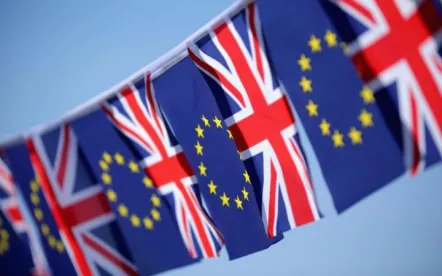This note identifies those European and international legal frameworks that are unaffected by Brexit and those that may cease to apply in the UK when it withdraws from the European Union unless specific arrangements are put in place. It is one of a series of GTM Alerts designed to assist businesses in identifying the legal issues to consider and address in response to the UK's referendum vote of 23 June 2016 to leave the EU.
The three sections below address: (1) the impact of Brexit on the application of EU law in the UK, (2) legal frameworks aside from EU law likely to be affected by Brexit, and (3) legal frameworks that are unaffected by Brexit, such as the European Human Rights Convention and other pan-European and international treaties.
1. EU Law: Application in the UK Affected Once Brexit Occurs
-
EU Law Continues to Apply in the UK until Brexit
The UK has not yet left the EU. It will remain a member of the EU, and EU law will continue to apply in the territory of the UK until Brexit, which, for the following reasons, may take some time.
Before exiting, the UK needs to go through the exit procedure set out in Article 50 of the Treaty on European Union, starting with notification to the European Council of its decision to leave the EU. The new UK Prime Minister, Theresa May, appointed on 13 July 2016, has clearly stated that, while “Brexit means Brexit,” there should be no rush to serve the Article 50 notification. She and David Davis, the Secretary of State for the new government department in charge of managing Brexit, have supported the view that notification should not take place before the end of the year. Following their recent discussions with Mrs. May, German Chancellor Angela Merkel and French president François Hollande have both accepted that the UK needs time to prepare for exit negotiations, although they have also stressed that the UK's Article 50 notification should not be unduly delayed as this would not be in the interests of the EU or UK economies.
While the situation remains fluid, it is expected that the next few months will see the UK establishing its preferred negotiating position on the terms of its exit from the EU and its preferred model for its future relationship with the EU, before notification in early 2017. This timetable should also allow sufficient scope to resolve a number of actions in the English High Court, aimed at ensuring that the government does not serve the Article 50 notification without first giving Parliament the opportunity to vote on it.
When the notification is made, it will trigger a two-year, extendible period of negotiation with the EU on the UK’s terms of exit only. At this time, it is not clear if negotiation of new arrangements with the EU will be conducted in parallel, or at a later stage. It is, however, clear that the UK intends to start negotiating trade terms with non-EU countries as soon as possible.
-
Some EU Legislation May Need to be Replaced upon Brexit
The preferred model for the UK's new arrangements with the EU is not yet clear, and this will significantly influence the extent to which EU legal principles and EU laws continue to apply in the UK.
Whichever model is chosen, however, it is likely that the European Communities Act 1972 (ECA), which incorporated the EU treaties into the laws of England and Wales, Scotland, and Northern Ireland (UK Law), will be repealed, at least in part, upon Brexit. If the UK opts to join the EEA, EU law will be "reintroduced" in the UK by means of the EEA Agreement (see section 2 below). With other models, EU laws will no longer apply in the UK unless they have been implemented in the UK by means of Acts of Parliament.
Where there is no implementing Act of Parliament, there is potential for significant gaps in UK law because other EU-derived laws will fall away upon Brexit. The EU treaty articles and regulations apply directly in the UK without need for implementation and will simply cease to apply. EU Directives, on the other hand, do not generally apply directly in the UK, but are implemented by UK secondary legislation, mainly under the authority of ECA. Positive action would need to be taken to ensure that, as far as appropriate, these two categories of laws are preserved collectively by means of a single piece of legislation – perhaps an amendment to ECA – or replaced by individual laws (less likely in the short-term given the volume of work required).
In particular, and subject to the terms of the UK's new arrangements with the EU, consideration will need to be given to new UK regimes governing sectors such as:
-
financial services and insurance, since “passporting” may be affected on Brexit (this issue will be addressed in separate GTM Alerts),
-
chemicals, since the EU REACH regime may no longer apply in the UK, and
-
pharmaceuticals and medical devices, since the EU authorisation regime will no longer apply in the UK.
2. Legal Frameworks Likely to be Affected by Brexit – Aside from EU Law
-
WTO: UK Terms of Membership
The impact of Brexit on the UK's membership of the World Trade Organisation (WTO), established in 1995 and with 163 members, is more complex. The UK and the EU are both members in their own right; however, the European Commission alone speaks for both the EU and all EU Member States, including the UK, in almost all WTO meetings and almost all WTO affairs.
The impact of Brexit on the UK's membership of the WTO, a possible model for the future UK/EU relationship, will be addressed in a separate GTM Alert.
-
European Economic Area: UK Membership
The UK and the EU are both signatories to the agreement establishing the European Economic Area (EEA). The EEA is comprised of three of the four European Free Trade Association (EFTA) member states (Norway, Iceland, and Liechtenstein), the EUand, individually, the 28 EU Member States. EFTA member Switzerland is not a member of the EEA and has its own bilateral trading arrangements with the EU. Membership of the EEA provides access to the EU Single Market, with the principal exceptions of agriculture and fisheries.
For the UK to join the EEA in its own right, as a non-EU member, it would first have to negotiate with Switzerland, Norway, Iceland, and Liechtenstein to rejoin EFTA, which it left when it joined the then European Economic Community, now the EU. EFTA was set up in 1960 as an alternative trading area for European countries that are non-EU members.
EEA membership as an alternative to EU membership will be addressed in a separate GTM Alert.
-
Euratom: UK Membership
The UK is also a member of the Euratom community, established alongside the European Economic Community in 1957 by the Euratom Treaty, for the purpose of creating a specialist European market for nuclear power, promoting safety, and preventing nuclear materials from being diverted from civil to military use. It has the same Member States as the EU and is governed by the same institutions. It forms part of UK law by virtue of ECA.
The view of many commentators is that it would be possible for the UK to remain a member of Euratom upon Brexit, because the Euratom community is legally distinct from the EU, requiring a separate (although identical) exit procedure, and the referendum question did not expressly refer to Euratom. In addition, ECA could be repealed only in relation to the EU treaties. Other commentators counter that the clear wish of the UK electorate on June 23 was to withdraw from the EU institutions that govern both the EU and Euratom communities and that it would be politically unacceptable to retain UK membership of Euratom.
How the debate will be resolved remains to be seen, but it is clear that if the UK withdraws from Euratom, the EU laws that form an integral part of the UK nuclear power regime would have to be replaced.
-
UK Participation in EU-Negotiated International Treaties
Where international treaties have been negotiated by the EU on behalf of the EU Member States, the UK is likely to have to negotiate new treaties, or at least new terms of participation. Where this is not the case, the UK's participation will remain unaffected by Brexit. The relevant treaties will be considered in more detail in future GTM Alerts on the impact of Brexit in particular legal or sectorial contexts.
3. Legal Frameworks Unaffected by Brexit
-
Human Rights: European Convention Unaffected; EU Fundamental Rights will Cease to Apply
Brexit will not affect the European Convention on Human Rights (ECHR). The ECHR is not an EU Treaty. It is an international treaty that was established within the intergovernmental organisation of the Council of Europe (not an EU institution), that came into force in 1953 and that has 47 signatories across Europe, including all the EU Member States, Russia, Ukraine, and Turkey. The ECHR's purpose is the protection of human rights and fundamental freedoms in Europe and it is enforced by the European Court of Human Rights (ECtHR) in Strasbourg.
The EU itself is not a party to the ECHR, due to a ruling by the European Court of Justice that it would be incompatible with EU law. As a result, the EU is not bound by the decisions of the ECtHR. It is, however, required by Article 6(3) of the Treaty on European Union to respect the fundamental rights guaranteed by the ECHR and provided for in the constitutions of the 28 EU Member States. The EU is also bound by a separate EU Charter of Fundamental Rights that has the status of a treaty and protects rights similar to those covered by the ECHR, although it also gives the European Court of Justice the power to provide more extensive protection than the ECHR. In addition, the principles in the ECHR are afforded special significance by the European Court of Justice in its decision-making. All of these EU safeguards form part of UK law until Brexit, after which they will no longer apply.
The ECHR has been partially incorporated into UK law through the Human Rights Act 1998. The future of this act is in question following the pledge by the governing Conservative party in 2015 to abolish it in favour of a British Bill of Rights that would provide greater UK control over the nature of the rights protected under the Bill; however, little has been said about this since the referendum vote of 23 June 2016.
-
Intellectual Property Rights: WIPO Membership Unaffected, Patents Largely Unaffected, Trade Marks and Community Registered Designs Affected
Brexit will not affect the UK's status as a member of the Geneva-headquartered World Intellectual Property Organisation (WIPO), set up under the WIPO convention of 1967 as a self-funding agency of the United Nations. It provides a global forum for intellectual property (IP) services, policy, information and co-operation among the 188 UN Member States.
The UK will also remain part of the European Patent Convention system, as the Convention is not a part of the EU’s apparatus. This means that it will still be possible for applicants to apply centrally via the European Patent Office for European Patents which designate the UK. Any European Patents which applicants have obtained pre-Brexit and which cover the UK will also be unaffected. European Commission proposals for a European unitary patent, providing patent protection across most of the EU, and a new Unified Patent Court with a central division in Paris and sections in Munich and London, were targeted to take effect in 2017 after ratification by the EU Member States concerned. The UK has not yet ratified the Unified Patent Court Agreement and is under pressure to do so in order for the proposal to proceed. However, unless a mechanism can be found to preserve the UK's continued participation post-Brexit, this would be short-lived, and the London section of the court is likely to be moved elsewhere.
There is likely to be a greater impact on the UK’s membership of the EU Trade Mark (EUTM) and Community Registered Design (CRD) systems. These systems are administered by the EU Intellectual Property Office, which is an EU institution. It is currently possible to obtain EUTMs and CRDs that cover the UK as well as the other 27 EU Member States. It remains to be seen what effect any negotiated transitional arrangements will have on the UK portions of such EU-wide rights that were obtained pre-Brexit, however these rights could be converted into rights that cover the UK and the remainder of the EU. It also seems likely that applicants wanting to obtain trade mark or registered design protection for the 27 remaining EU Member States and the UK post-Brexit will have to apply for an EUTM/CRD and file separately in the UK as well.
-
Membership of Other International Organisations: Unaffected
The UK is a member of the following international organisations in its own right and not through the EU, so its membership will not be affected by Brexit.
-
The United Nations (UN), established in 1945 to promote international co-operation and now has 193 members. The UK is also one of five permanent members of the UN Security Council, alongside China, France, Russia, and the United States.
-
The North Atlantic Treaty Organisation (NATO), an international alliance formed in 1949 that provides for mutual assistance in times of attack on any one of its members. Other members include the United States, Canada, Turkey, and a number of EU Member States, although the EU has no rights to control those states' NATO memberships.
-
G7, G8, and G20, established to facilitate members' finance and economic policies and now includes the EU as a separate member. Members also include the United States, Germany, and France.
-
The Organization for Economic Co-operation and Development (OECD), established in 1961 to promote economic progress and world trade. The 35 members include the United States, Canada, Germany, and France.
-
The Organisation for Security and Co-operation in Europe (OSCE), established in 1975 for the purposes of crisis early warning, conflict prevention, crisis management, and post-conflict rehabilitation. It has 57 member states across Africa, Asia, Europe, and North America, including the United States, Canada, Germany, and France.





 />i
/>i

